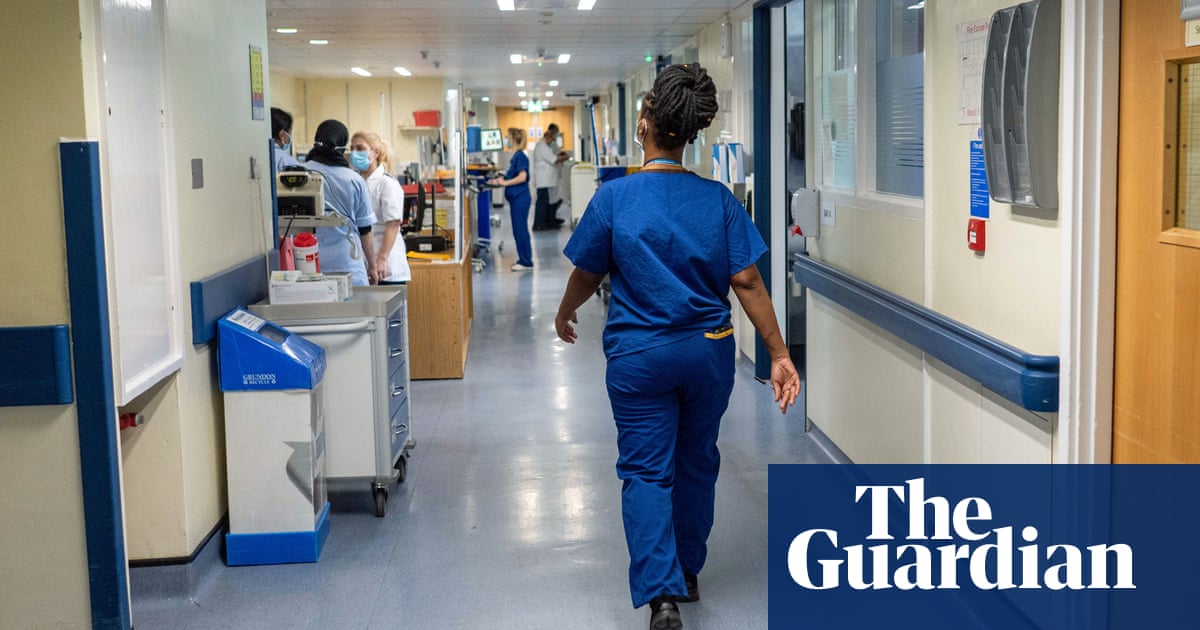
The Royal College of Nursing has warned of an increase risk of Covid among hospital staff and patients due to the NHS’s failure to follow World Health Organization advice about infection control during a current spike in cases.
The most recent figures showed one in 24 people in England and Scotland had Covid on 13 December, up from one in 55 two weeks before.
On Tuesday, the WHO expressed concern about a new subvariant of Omicron, labelled JN.1, after its rapid spread in the Americas, western Pacific and European regions. To tackle the increase, the WHO advised that all health facilities “implement universal masking” and give health workers “respirators and other PPE”.
Now the RCN has written to the four chief nursing officers in England, Wales, Scotland and Northern Ireland asking why this guidance has not been introduced across the NHS.
The letter, seen by the Guardian, points out that existing guidance in the national infection prevention and control manual (NIPCM) does not mandate hospital staff to use masks. It also leaves decisions about respirators to local risk assessors.
The RCN says this guidance to UK hospitals is “inconsistent” with WHO advice.
The letter by Patricia Marquis, the RCN’s director for England, calls for urgent revision to the NIPCM guidance to ensure the “universal implementation” of masks and respirators for health workers.
Marquis wrote: “I am mindful of the current unsustainable pressures on the health service, with … a rise in cases and hospitalisations with Covid-19, alongside other respiratory viruses in general circulation. I am concerned that without proper protections ill-health and sickness will continue to rise in nursing staff and impact on their ability to deliver safe and effective patient care.”
She added: “We are also concerned about the increased risks to patients from hospital-acquired respiratory infections.”
Marquis also raised the issue of ventilation in hospitals. She said: “We also have concerns about the adequacy of ventilation in general ward and outpatient areas within hospital buildings and believe that action must be taken to assess and improve this.”
In Tuesday’s update, the WHO said the global health risk posed by JN.1 was “low” based on the available evidence. But it added: “Despite this, with the onset of winter in the northern hemisphere, JN.1 could increase the burden of respiratory infections in many countries.”
It also pointed out that Covid “is not the only respiratory disease circulating. Influenza, RSV and common childhood pneumonia are on the rise”.
The UK Health Security Agency, which is responsible for the guidance, has been approached for comment.
Christina Pagel, a professor of operational research at University College London, suggested JN.1 was likely to cause a wave of infections second only to that recorded in England in March 2022, which was driven by the Omicron variant.
“After a quieter 2023, it’s a sign that we can’t just assume that Covid has gone away or can’t cause us significant issues any more,” she said, adding as many people had not been eligible for recent booster programmes, they had not had a Covid vaccination for two years.
“This will likely mean they feel sicker [if they do catch Covid] and also [have an] increased risk of long Covid too,” Pagel said. “Given we’ve got millions of leftover vaccines from the autumn booster campaign, why not try to put them in people’s arms instead of the bin and open them out to the general population?”












